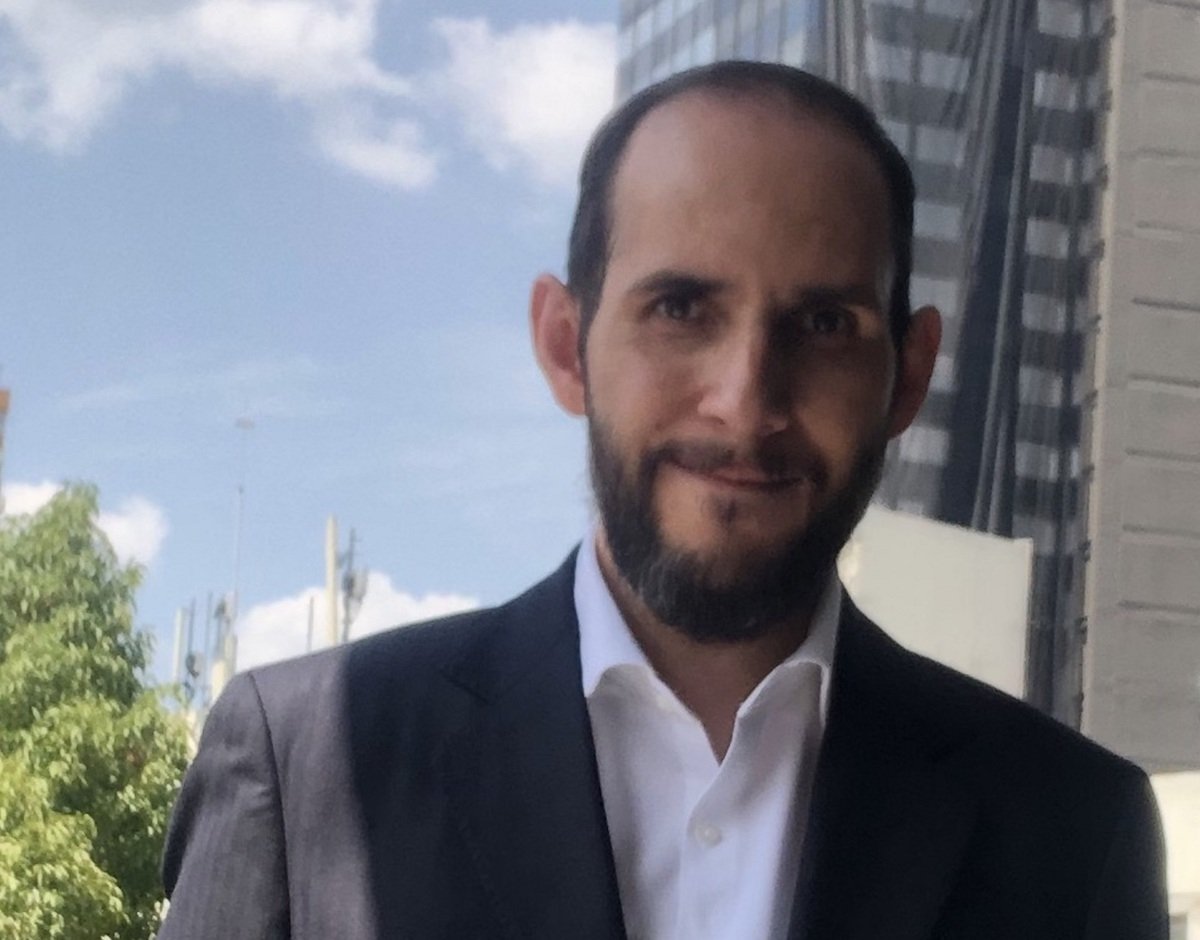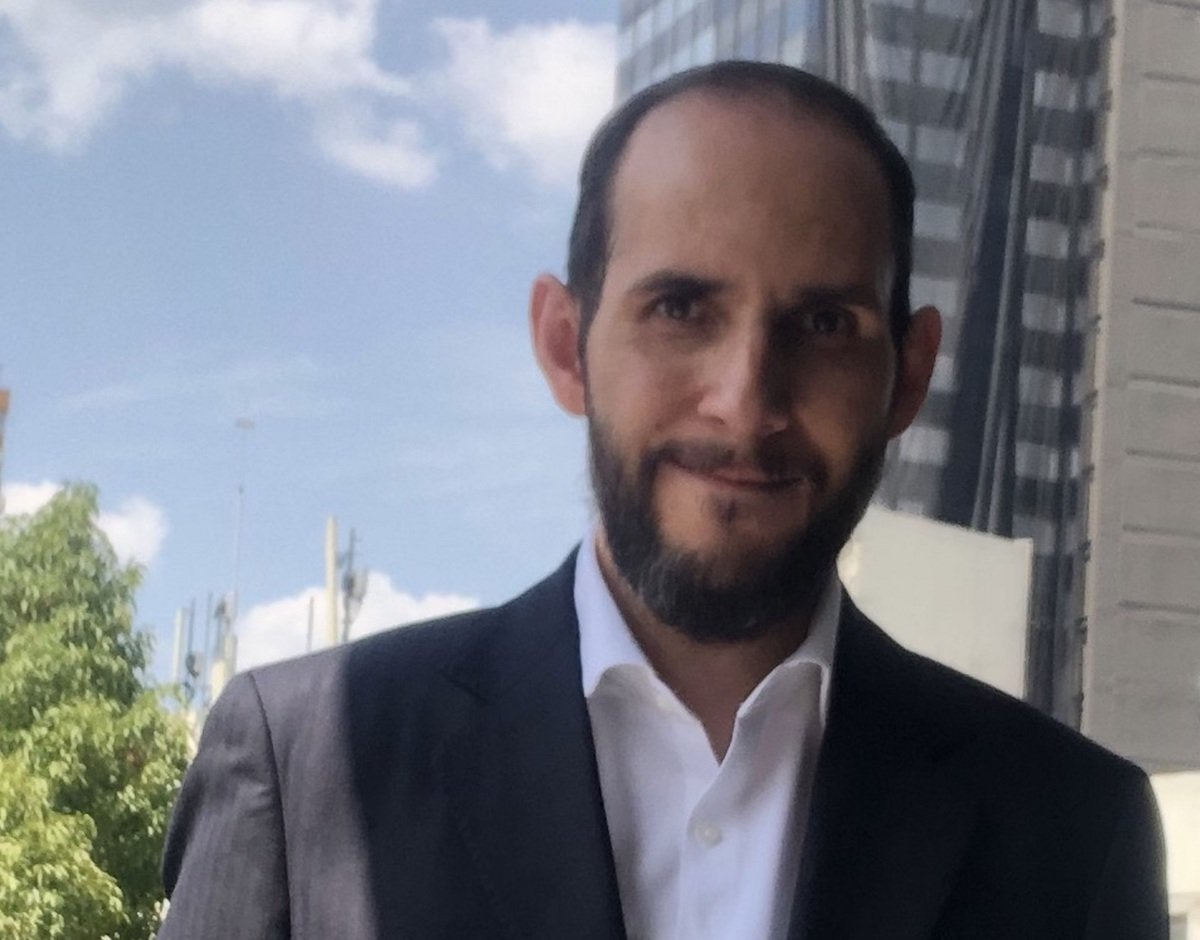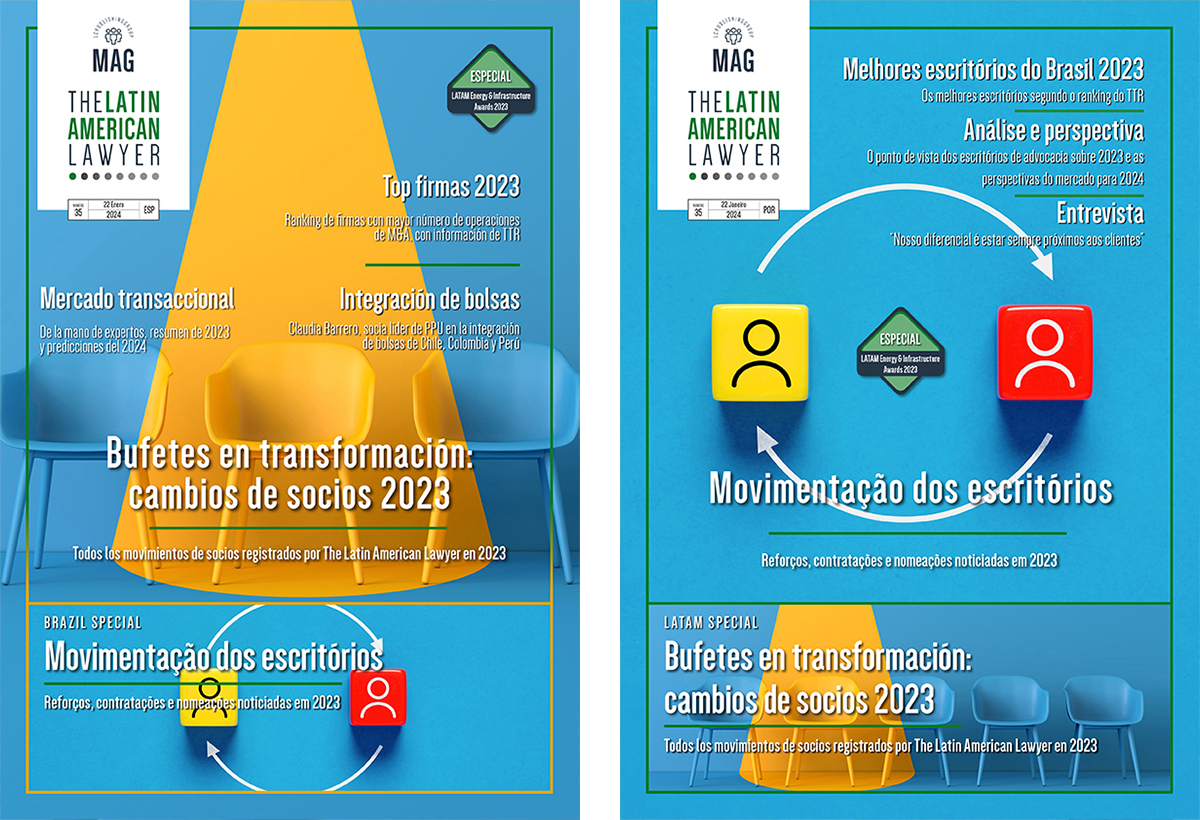The winning combination

Law firms are like a company’s ‘family doctor’, with knowledge of its track record, strengths and weaknesses, which enables them to provide emergency attention, according to César Alejandro Villegas Ávila, Acciona’s legal director for Mexico and the Caribbean.
 When it comes to hiring external legal services, companies rely on law firms in the same way that a family relies on its doctor, knowing that they are being attended to by someone that is familiar with their track record, their strengths and their weaknesses, César Alejandro (pictured) tells The Latin American Lawyer.
When it comes to hiring external legal services, companies rely on law firms in the same way that a family relies on its doctor, knowing that they are being attended to by someone that is familiar with their track record, their strengths and their weaknesses, César Alejandro (pictured) tells The Latin American Lawyer.
“As with a family doctor, having a ‘family law firm’ is essential,” he says. “Nobody can provide you with emergency legal attention or first aid like your trusted lawyer. As in all relationships, the relationship between a company and a law firm is based on honesty, communication and transparency,” he says. “That is the winning combination.”
Spanish infrastructure and renewable energy company Acciona has a presence in 65 countries, of which 12 are in Latin America. In Mexico, where the company has been operational since 1978, Acciona is engaged in renewable energy projects, construction, road concessions, water projects and the services sector. The company’s energy projects include wind farms, including the largest wind complex in Latin America, in Oaxaca state, and the Ventika wind farm in Nuevo León state, the company’s largest turnkey project carried out by the company globally, and a solar photovoltaic facility in the state of Sonora.
Acciona also built the country’s Baja California II thermal power plant, in the state of the same name, and is currently developing the Atotonilco wastewater treatment plant near Mexico City, among other projects. In Central America, Acciona is present in Costa Rica, El Salvador, Nicaragua and Panama, and in the Caribbean in the Dominican Republic and Trinidad and Tobago, while in South America the company’s footprint extends to Brazil, Chile, Colombia, Ecuador and Peru.
SUCCESS STORIES
When it comes to choosing a law firm, Acciona’s in-house team looks for both the prestige of the firm and the professional trajectory of the lawyers themselves, for which it looks at case histories and success stories, he says.
“We have a competitive hiring process, based on diverse criteria. First of all, we identify the law firms that have the greatest prestige in the practice area that we require. Wherever possible we try to get to know directly the professionals who will offer the service, their experience and their success stories. The cost of the service is also an important element to consider, although that is evaluated together with the other criteria, such as previous experience, the opinions of other clients, the law firm’s capacity for attention and its availability,” he says.
“We are also very strict about law firms fully complying with ethical values and corporate policies of integrity, as well as legal compliance, under both national and international standards,” he says.
And when it comes to hiring an external firm, the company will often seek a particular firm or lawyer because of their experience and knowhow, he says. “In Mexico we have excellent law firms and lawyers that are at the top of our minds when we are seeking legal services. In the energy sector there are firms that have specialised teams that are recognised in the sector and they are the ones we look for when we begin our search,” he says.
“Prior experience and specialisation in the sector facilitate the selection of a firm or a specific lawyer,” he says.
The benefits of using an external firm are having the guarantee of being able to rely on a full and high-quality service in the required timeframe, as well as an external and objective point of view that can clear up doubts or questions that are perhaps more difficult to resolve from within the company,” he says.
“External firms complement the capacity of our in-house department in all senses.” But there is always the risk, when hiring legal services, that the quality will not be as high as expected, he says. “Often expectations can exceed results, or you may find that quality and price has not been optimal. But that risk exists in all manner of contracting.”
“Some law firms are ruled out however due to a possible conflict of interest, as the firm may represent a competitor or counterpart, or a firm may be ruled out because there has been an unfortunate experience in the past, perhaps because a firm did not meet the high standards of corporate ethics and values of our company,” he says.
“We have a diversified legal team experienced in various practice areas, but we do tend to use external firms when complex issues require lawyers who are specialised in areas such as project financing, antitrust, M&A, and litigation and arbitration,” he tells The Latin American Lawyer during a phone conversation amid the country’s lockdown due to the COVID-19 pandemic.
“As a legal services department, we need to be able to have specialised resources of the highest quality that the business requires, and we therefore always have the support of the law firms that help us to cover those needs.” “We have used the services of law firms of all kinds, both local and global firms, and which has enabled us to build a fluid and successful relationship with them. Trust is essential for the development of such professional and commercial collaboration,” he says.
THE LEGAL LANDSCAPE
He says that changes are taking place across Mexico’s legal landscape, with more global law firms setting up shop in the country.
“In Mexico there is a growing number of law firms that are backed by large brands, or which are multinational franchises, and that creates greater diversity and options when choosing a firm for legal services, and which is a good thing in terms of healthy competition,” he says. “Sometimes you need an international firm, and on other occasions a traditional or boutique law firm is what we use. I celebrate the fact that there is an increasing number of women in leadership and directorship positions within law firms and in-house legal departments within corporations, and that trend must continue,” he says.
“I greatly appreciate lawyers at firms who have previously worked as in-house within companies, as they have a lot of knowhow about workflow and the kind of demands that exist within an organization,” he says.
“At the same time, a lawyer’s practical or specialist knowledge is fundamental, as there is nothing better than a lawyer that is familiar with the concepts, terms and practices within the industry or the sector, which allows us to work in a much more effective and precise way, as well as optimising response times,” he adds.
“As a global company with a presence in various countries, we often look for law firms that have a presence in both Spain and Mexico. However it is not always possible to find that combination, and in that case we would hire legal services from a local firm with the best knowledge of local legislation and practices in the country in which we are operating, and that has been how we have worked in Costa Rica or the Dominican Republic, for example.”
“Much of our day-to-day legal work has to do with the contracting of services and goods, both as a supplier and a user, and legal consultations across our diverse business areas and with our partners keep us occupied,” he says.
“Our legal team comprises specialists in the business and the corporate sphere, with very talented men and women that work in a coordinated manner across the company’s international operations, and this team has managed the company’s legal needs for the last five years, and we expect the team to grow hand-inhand with the growth of the business, maintaining an efficient balance between cost and benefit to add value and competitiveness to Acciona,” he says.
PROJECTED GROWTH
But the workload has increased as the company expands its portfolio of projects in Mexico and the Caribbean, in part due to the energy reform in Mexico, which over the last five years has seen the sector opened up to more private investment.
“Over the last three years we have seen the volume of work increase, with constant growth in activity in the development, construction and operation of power stations and the sale of energy on the wholesale electricity market. The company’s installed capacity has increased and with that the need for legal services for our internal clients,” he says.
And that growth is expected to continue across the region, he says.
“We are currently working on new business opportunities in Central America and the Caribbean, and a large part of our resources are channelled into attending to the new challenges that that brings, but without neglecting the business that is already consolidated,” he says.
“New projects are very demanding in terms of time and resources, particularly when it comes to working in new jurisdictions and regulatory frameworks, but we are prepared for that and we take on the challenge with gusto,” he adds.














